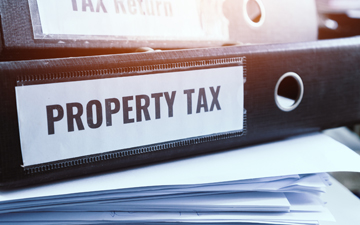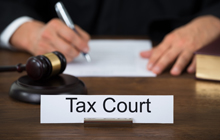Why accountants should question property tax assessments

Are your clients leaving money on the table?
 |
John Clark, vice-president, tax and valuation, Regional Group. |
OTTAWA – Property tax is one of those topics that has most people's eyes glazing over in a matter of seconds. But it is an area where Canadian accountants can deliver added value to their firm’s clients by asking a few specific questions.
I always say that taxation, at any level, is the price of freedom. Even so, paying more than one’s fair share is just wrong. If your client is paying too much, they are actually subsidizing their neighbours and their competition, who will pay less than their fair share at your client’s expense. This can obviously hurt the bottom line of a business and make it less competitive.
How often are assessments in error? About one-quarter of assessments, on average, are not accurate. Of those, some undervalue a property, which is obviously to the benefit of the owner. For those that have overvalued a property, the gap is often too small to warrant the cost of an appeal.
Still, the discrepancies that are punitive to the property owner can add up. Take Ontario, the largest assessment jurisdiction in North America, with over five million commercial and residential properties. In previous assessment cycles, thousands of Ontario property owners have successfully appealed their assessments for $15 billion to $20 billion in aggregate reductions.
How the assessment process works
Depending on where in Canada your client’s properties are located, an assessment will be calculated either by a department within the local municipal government, a private organization, a provincial agency — or, as is the case in many provinces including British Columbia, Ontario, New Brunswick and Nova Scotia — by an independent, not-for-profit corporation.
Regardless of the who, the why is the same — to provide the local municipality with the data it needs to help calculate the taxes on your client’s property and distribute the tax burden between property owners.
Municipalities operate on a break-even basis. City Hall’s goal is to collect only enough revenue (through property taxes and user fees) to cover its annual operating budget. Each property will pay for, through its taxes, a proportionate share of the operating budget that is determined by its classification and assessment. The higher the individual assessment, the greater the property owner’s share. The lower the assessment, the lower the share.
|
What factors assessors consider
Property valuation is equal parts fact and opinion. Because people are involved, opinions — like tax bills — can vary, and sometimes widely.
The basis for most assessments is fair market value — what would a property sell for if it was listed as of a set base date?
Fair market value is a calculated opinion that attempts to normalize a property as much as possible by grouping it for comparison purposes with similar properties — similar in size, intended use, condition, amenities, access to utilities and infrastructure, location, and so on.
Let’s take two neighbouring retail businesses as an example. In an ideal world, if they are the same size and otherwise check the same boxes, they should have roughly the same tax bill. If they don’t, it’s a red flag.
Quantifiable variables that can justify such a discrepancy between two comparable properties include upgrades or enhancements to one property since the last assessment cycle, or, conversely, any factor that has since reduced its functionality and/or market appeal.
How assessors can get it wrong
Problems arise if the assessor’s office has outdated or incorrect information on the size, use or condition of a building(s).
Here is one example from my case files. A communications company’s accountants questioned the size of its tax bill. Through our analysis, it was discovered that it had been incorrectly assessed for 220 acres of land that should have been assessed to someone else. The company had unknowingly been paying somebody else’s property taxes — for four years!
I will dive into the nitty gritty of the appeals process in my next article, but upon a successful appeal, this company received a refund cheque for $635,000.
In another instance, it wasn’t an error due to incorrect information on file, but a change in legislation that unfairly disadvantaged some properties versus others.
This case took place in Newfoundland and was also successfully appealed on behalf of the plaintiffs. New legislation had allowed certain commercial properties to be deemed “Special Purpose Properties” for the purposes of assessment.
Properties classed as SPPs experienced a substantial rise in their assessed values, well beyond market value. This led to their property taxes being far higher than those of other owners in the same community of what were reasonably similar properties. In court, it was successfully argued that an unfair situation had arisen because some commercial properties in a comparable group had been classified as SPP and others had not.
What an accountant can do
• Review your client’s previous tax bills. Go back five years or more. Look for significant changes from one year to the next.
• Ask your client about any upgrades, enhancements, or retrofits that may increase the property’s assessed value.
• Conversely, ask for changes in status that may warrant an assessment decrease — long-term vacancies, partial building demolition, damages, increased flood risk, etc.
• If you have clients with comparable properties in the same municipality, see if there are suspicious discrepancies between one property’s tax bill and the other.
• Get to know your client’s local tax assessor. Many property owners fail to engage in a working relationship with their assessor, which can go a long way toward reducing errors and miscommunications.
Professional help may be warranted
As a chartered professional accountant, you’re always looking for ways to save your clients money. The odds are good that real estate valuation and property tax administration are not core competencies of your client or their finance staff (if they have any). When tax bills come in, they may be routinely paid by a clerk with little thought to whether they are equitable or not.
Much like reading an x‐ray, serious problems with a property assessment are often not readily apparent to the untrained eye and may require the expertise of an experienced real estate valuation professional.
In my next article, I will talk about the appeals process.
John Clark is vice-president, tax and valuation, at Regional Group, which is based in Ottawa.










(0) Comments